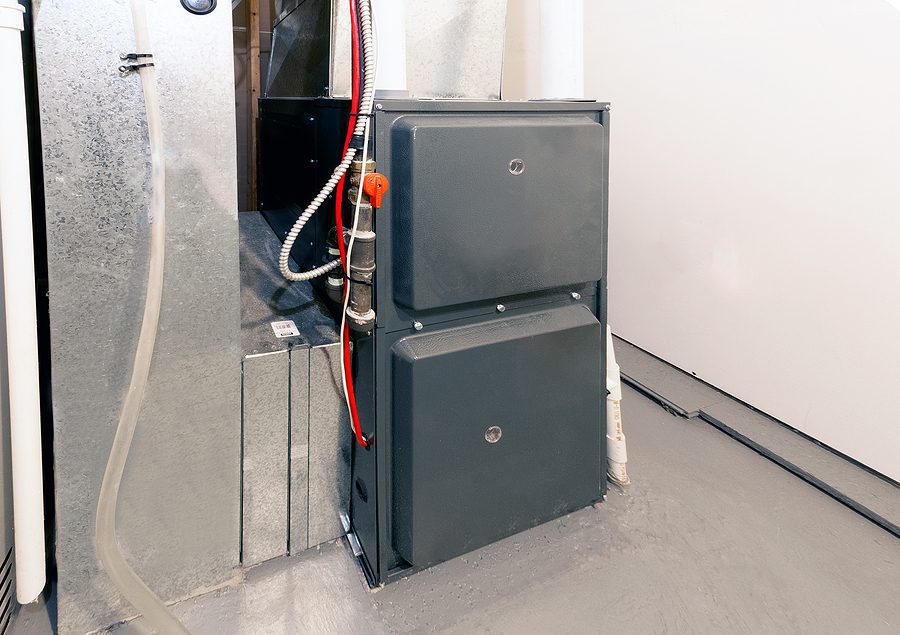
The right Albuquerque heating system can have a serious impact on how well your home stays warm during the cooler months, as well as how much you spend to keep it comfortable.
When it comes to heating systems that utilize forced air, the two major players are furnaces and heat pumps. Each of those has its own pros, and cons so let’s first look at how these systems work along with their advantages and disadvantages so that you can decide better between the two.
How Forced Air Heating Works
These systems use ductwork and vents to disperse warm air around your home. The process starts when the system sucks in cold air, and as soon as enters through an air filter for cleaning up dust, pollen and other impurities. This filtered air is then heated by a furnace or heat pump, and blown through the house. This goes on, until it reaches the temperature that we want to set via thermostat. This kind of system is functional throughout the entire year, while some systems provide both heating and cooling functionality.
Variations in Forced Air Systems
- Furnaces: One of the most popular types of forced-air heating system is a furnace. Gas, propane, electric or oil-fueled. Furnaces quickly heat air and blow it throughout the home via a blower fan and ductwork.
- Heat Pumps: These have become popular in that they do both Heating and Cooling. Instead of generating heat, they transfer it to either warm your home up in the winter or cool you down during the summer. During chilly months, they draw heat from the exterior atmosphere and bring it indoors.
Advantages of Forced-Air Heating Systems
- Energy efficiency: Forced-air heating systems—especially heat pumps—are much energy efficient. Heat pumps are generally also more energy-efficient than conventional electric heating systems, leading to lower operating costs over time.
- Air Quality: Forced-air systems can help improve indoor air quality with regular replacement of air filters. Air filters trap allergens, dust, and other particles so they do not enter your home and circulate in the air.
- Heat and cool: Environmental systems are used all year long to keep a home comfortable inside with heat or collapse.
- Humidity Control: If combined with humidifiers or dehumidifiers, forced-air systems will keep your indoor humidity at optimal levels for comfort and health.
Drawbacks of Forced-Air Heating
Although there are many advantages to forced-air systems, these systems do have the following disadvantages:
- Inconsistent Heat Distribution: One room can feel warmer than another. Some areas may receive less heat if you have blocked vents with furniture or appliances.
- Airborne Allergens: Negligence in maintenance, not replacing air filters. Cleaning and maintenance must take place regularly for air quality and overall operational performance of the system.
- Leak in Ductwork: Well-insulated duct work assists ensure system efficiency, as heat loss through leaky ducts can lead to extra energy costs.
Furnace vs. Heat Pump Differences
Heating Performance
- Furnaces: A furnace is a high output heating system that delivers consistent heat and works well for colder climates. They provide direct heat to the air, and are often a quick source of warmth even in extreme cold.
- Heat Pump: Heat pumps are more efficient, working by transferring heat from the outside air. However, when the temperatures drop very low they may not work as efficiently and a secondary heat source may be needed.
Energy Source and Cost
- Furnaces: The ongoing expense for gas furnaces is typically less than that of electric systems, as natural gas tends to be cheaper than electricity. However, upfront installation cost may be higher.
- Heat pumps: They cost more initially to install than other options but provide large savings in energy bills over the long haul.
Maintenance and Lifespan
- Heating Systems: Whether your heating source is an oil-based boiler, or a gas-based furnace, annual servicing is necessary to operate these machines safely and efficiently (Gas systems need even more maintenance). Their life-expectancy is generally longer than a heat pump.
- Heat Pumps: A heat pump is a dual-function HVAC unit, meaning it can provide both heating and cooling. Since you are using this unit all year long, it should be maintained twice a year but often live less time than furnaces because they are working more.
What to Choose?
In moderate-winter climates, heat pumps are an economical and efficient way to heat and cool your home. On the other hand, furnaces offer strong heat in lowly temperatures making it suitable for freezing temperature areas.
If you are not sure which option is best for your home, we strongly recommend that you speak with an HVAC technician. Companies including Day and Night Plumbing, Heating, Cooling, and Drains LLC offers the best HVAC services in Albuquerque, Rio Rancho, Placitas and further regions.
They provide everything from routine system maintenance & repairs to installation services so that you can keep your home warm all winter long.
Both heat pumps and furnaces have their pros and cons, but knowing the differences between the two will help you choose the right forced-air heating system for your home.
A little attention to regular maintenance and a bit of professional advice will have your system functioning at peak efficiency, and your family comfortable no matter what time of year it is.

